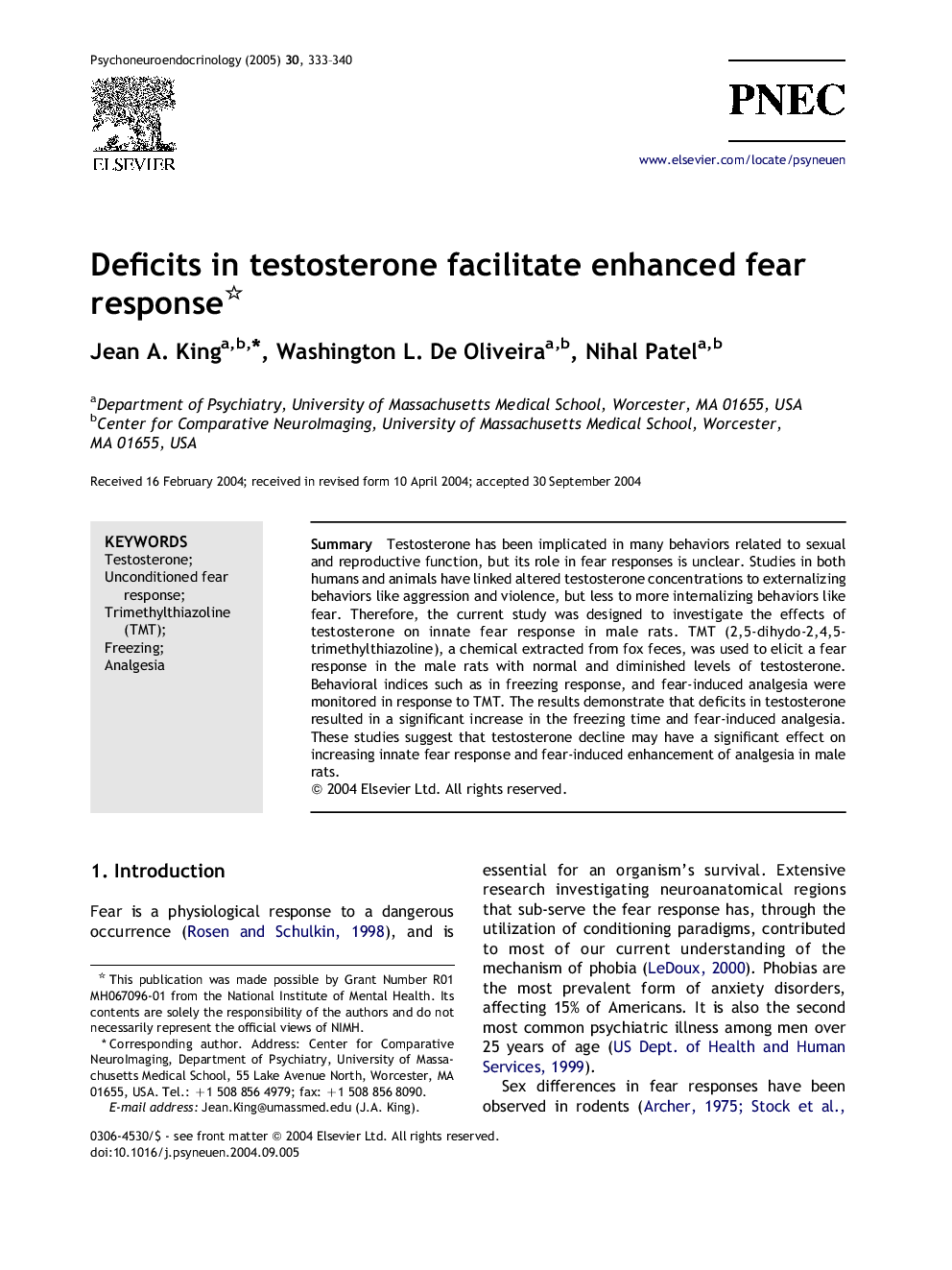| Article ID | Journal | Published Year | Pages | File Type |
|---|---|---|---|---|
| 10306838 | Psychoneuroendocrinology | 2005 | 8 Pages |
Abstract
Testosterone has been implicated in many behaviors related to sexual and reproductive function, but its role in fear responses is unclear. Studies in both humans and animals have linked altered testosterone concentrations to externalizing behaviors like aggression and violence, but less to more internalizing behaviors like fear. Therefore, the current study was designed to investigate the effects of testosterone on innate fear response in male rats. TMT (2,5-dihydo-2,4,5-trimethylthiazoline), a chemical extracted from fox feces, was used to elicit a fear response in the male rats with normal and diminished levels of testosterone. Behavioral indices such as in freezing response, and fear-induced analgesia were monitored in response to TMT. The results demonstrate that deficits in testosterone resulted in a significant increase in the freezing time and fear-induced analgesia. These studies suggest that testosterone decline may have a significant effect on increasing innate fear response and fear-induced enhancement of analgesia in male rats.
Keywords
Related Topics
Life Sciences
Biochemistry, Genetics and Molecular Biology
Endocrinology
Authors
Jean A. King, Washington L. De Oliveira, Nihal Patel,
